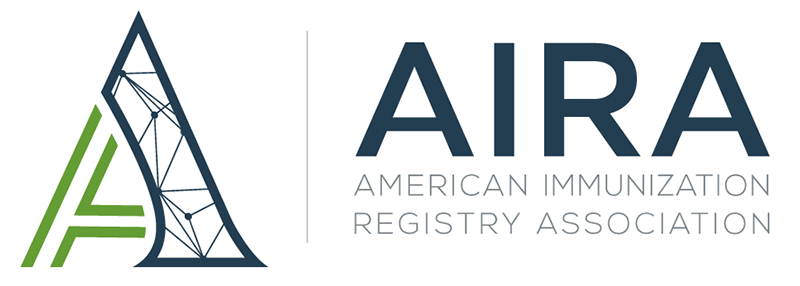ACIP February Update
The Advisory Committee on Immunization Practices (ACIP) met February 22–24 to review data on mpox, influenza, pneumococcal, meningococcal, polio, respiratory syncytial virus (RSV; pediatric/maternal and adult), chikungunya, dengue, varicella, and COVID-19 vaccines.
On the first day, ACIP unanimously voted in favor of recommending a two-dose JYNNEOS vaccine series (dose two administered one month after dose one) for persons aged 18 years and older at risk of mpox during an mpox outbreak. An outbreak is defined by public health authorities; a single case may be considered an mpox outbreak.
Over the course of the three-day meeting, the committee discussed the following:
- Influenza Vaccine Effectiveness (VE): The 2022–2023 influenza vaccine provides substantial protection against circulating influenza A viruses. Interim estimates were published in the Morbidity and Mortality Weekly Report. Quadrivalent Live Attenuated Influenza Vaccine (LAIV4) VE estimates from published, non-US observational studies were reviewed.
- Pneumococcal Conjugate Vaccine (PCV20) Phase 2/3 Study Results: Data on PCV20 use in US children was reviewed, and proposed policy questions were discussed. FDA approval of PCV20 use among children is anticipated in second quarter 2023.
- Meningococcal Vaccines (MenABCWY) Trial Data: Incidence of meningococcal disease declined during 2020–2021 but increased in 2022. New strains are emerging in the United States, predominantly affecting racial and ethnic minority groups. Pfizer’s pentavalent meningococcal vaccine trial data was reviewed. In June, ACIP will review data from GSK’s pentavalent meningococcal vaccine trial. A vote to approve the first pentavalent vaccine (Pfizer) is anticipated in October.
- Adult Polio Vaccination: ACIP discussed proposed language for adult polio vaccination for unvaccinated and incompletely vaccinated adults. An ACIP vote is anticipated in June.
- RSV Vaccines – Pediatric/Maternal: ACIP reviewed data and clinical considerations for nirsevimab, a single-dose long-acting antibody. If approved, nirsevimab would be the first passive immunization product to be independently included in the CDC immunization schedule. There are constraints to nirsevimab’s not being classified as a vaccine, including undetermined Vaccines for Children (VFC) program coverage, administration limitations for certain types of health care personnel, reporting of adverse events to a system other than the Vaccine Adverse Event Report System (VAERS), and IIS limitations on documenting non-vaccine products. FDA approval of nirsevimab is anticipated in fall 2023.
ACIP also discussed Pfizer RSV bivalent prefusion F vaccine and potential policy recommendations for pregnant women. A vote to approve the Pfizer bivalent RSVpreF vaccine is anticipated in October if the product is licensed by this time.
- RSV Vaccines – Adults: ACIP reviewed data on the cost-effectiveness of RSV vaccination among US older adults, a comparison of RSV vaccination economic analyses performed, and evidence to recommendations for GSK and Pfizer candidate vaccines and discussed policy options. The FDA has not yet completed a review of safety and efficacy data for the GSK adjuvanted RSVpreF3 vaccine and the Pfizer bivalent RSVpreF vaccine.
- Chikungunya Vaccine: ACIP reviewed the global epidemiology of chikungunya, chikungunya incidence in US travelers, and data on persistent arthralgia following chikungunya. Licensure is possible by August, with an ACIP vote on recommendations for adult travelers and laboratory workers anticipated in February 2024.
- Dengue Vaccines: ACIPreviewed Takeda dengue vaccine (TAK-003) safety and efficacy and interpretations of the associated data. An ACIP vote on TAK-003 is anticipated in October.
- Varicella: ACIP celebrated the impact of 25 years of the US varicella vaccination. Varicella vaccine has prevented 91 million cases, 238,000 hospitalizations, and 1,933–2,446 deaths, resulting in $23.4 billion in net societal savings. See Journal of Infectious Diseases supplement (November 2022).
- COVID-19 Vaccines: ACIP reviewed vaccine safety updates from CDC, FDA, and the Vaccine Safety Technical (VaST) workgroup, along with hospitalization and vaccine effectiveness data. Considerations for transitioning to bivalent primary series and future directions for COVID-19 vaccines were discussed. ACIP discussed the goal of simplifying COVID-19 recommendations. No vote took place.
During the three-day meeting, ACIP also discussed the respiratory disease surge that took place this past fall, along with the Inflation Reduction Act and its impact on vaccine coverage for adults (e.g., first-dollar coverage for all ACIP-recommended vaccines for adults).
The next scheduled ACIP meeting will be on June 21–22.
For a more detailed summary, view this week’s IZ Express newsletter.
